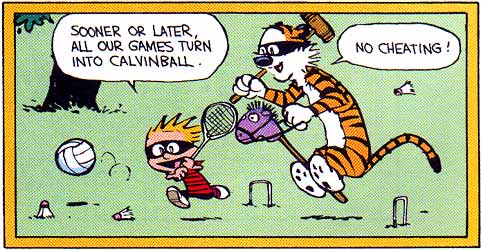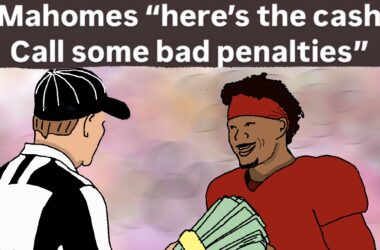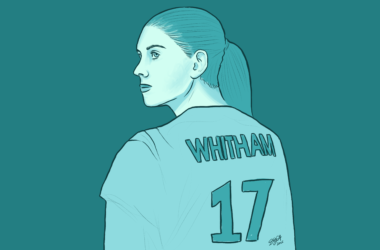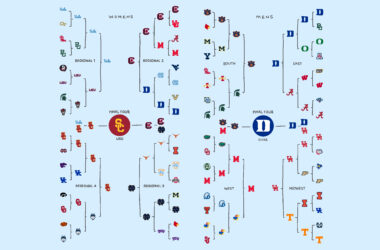In many long-running TV or book series, there is a game or sport that is wildly popular in-universe, but does not exist in real life. They range from one-off mentions, like Velocity in Star Trek: Voyager, to plot-central activities, like podracing in Star Wars Episode I: The Phantom Menace.
Calvinball
The comic strip Calvin and Hobbes features a chaotic, incomprehensible game called Calvinball, which has only three rules: Calvinball games may never be played the same way twice, players can invent rules whenever they please, and masks must be worn at all times. Aspects of the game featured in the comic include the “Pernicious Poem Place,” where players must recite poetry, the “Song Zone,” where they must sing, and nontraditional scores of “Nosebleed to Trousers” and “Q to 12.”
Podracing
Podracing, as featured in the Star Wars franchise, is a sport where drivers, mostly non-humans, pilot small crafts to compete in races so dangerous that the sport is outlawed between Episode III: Revenge of the Sith and Episode IV: A New Hope. In Episode I: The Phantom Menace, a young Anakin Skywalker wins his freedom through his podracing skills. Podracing gives film viewers all the fun of traditional racing with the added excitement of bizarre-looking creatures and faraway planets.
Exy
Nora Sakavic’s All for the Game trilogy centers around a ragtag NCAA Exy team. Exy resembles co-ed lacrosse, but is played on an indoor court and tends to be more violent, with a character being expelled via red card in nearly every game in the books. It was invented in Japan a few decades before the books are set, and quickly made its way to the U.S., where it caught on and expanded to college-level and professional leagues, and eventually became an Olympic sport.
Pro-bending
One of the more complex fictional sports featured on this list is pro-bending from The Legend of Korra. Benders, who can manipulate water, earth, fire, or air, use their powers to defeat their opponents in a sport loosely inspired by pro wrestling.
Each team consists of an earthbender, a waterbender, and a firebender, with specific rules governing the use of each bending type—for example, only waterbenders may make headshots. Pro-bending is extremely popular in-universe and plays a key role in the show, as the protagonist, Korra, joins a pro-bending team in the first season. The daring martial arts-inspired moves are mesmerizing, and the tension as they attempt to knock their opponents into receding territory zones or out of the ring is electric.
Quidditch
Quidditch is by far the most well-known and expansive fictional sport. Originating in the Harry Potter series, Quidditch is played on flying broomsticks. Over the years, it has been given an immense amount of attention. In addition to Quidditch matches often serving as the backdrop for character conflict and plot development, the supplementary book Quidditch Through the Ages tells the story of the “historical” development of Quidditch, lists common strategies and some of the 700 fouls in the sport, and provides an overview of its place in the wizarding world.
As the phenomenon of Harry Potter grew, Quidditch jumped out of the pages and was adapted to non-magical play by a group of students at Middlebury College in Vermont in 2005. In the 16 years since, scores of other schools, including McGill, have created Quidditch teams, and there is even a semi-professional league operating in North America. Although players cannot fly, they do hold broomsticks between their legs, and games can get almost as physical as they do in the books.
Not only are fictional sports invaluable contributions to worldbuilding, they can also give fans a physical way to connect with their favorite forms of media, whether through video game tie-ins or real-world versions. While one may never be able to live in the world of The Legend of Korra, they can become just as excited about a hero’s pro-bending victory as the characters do.









